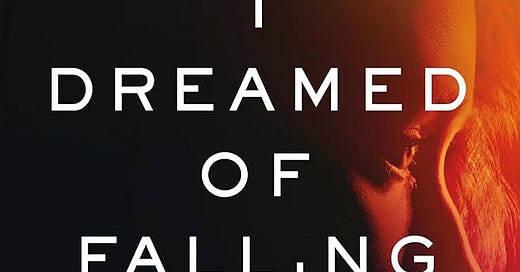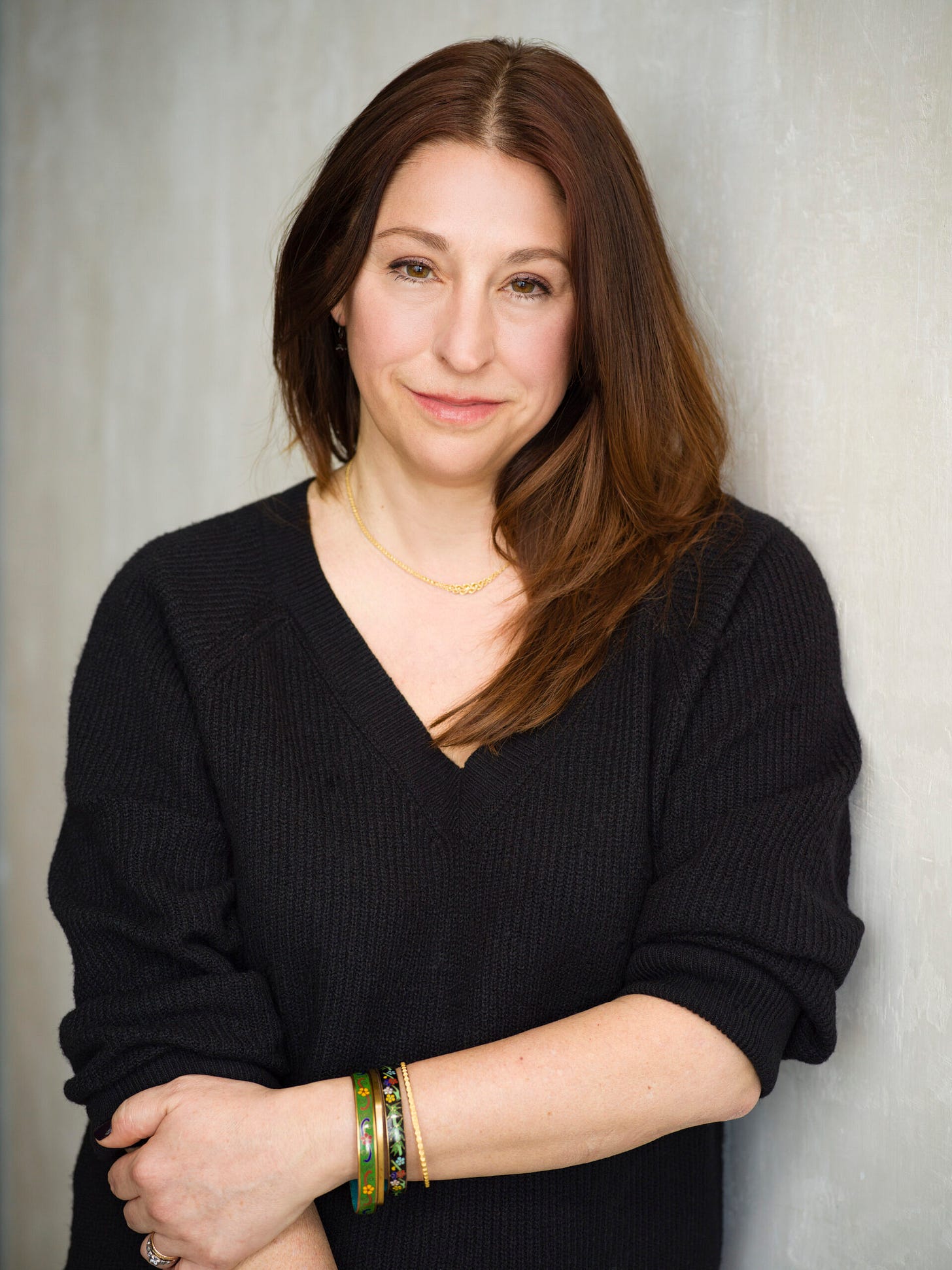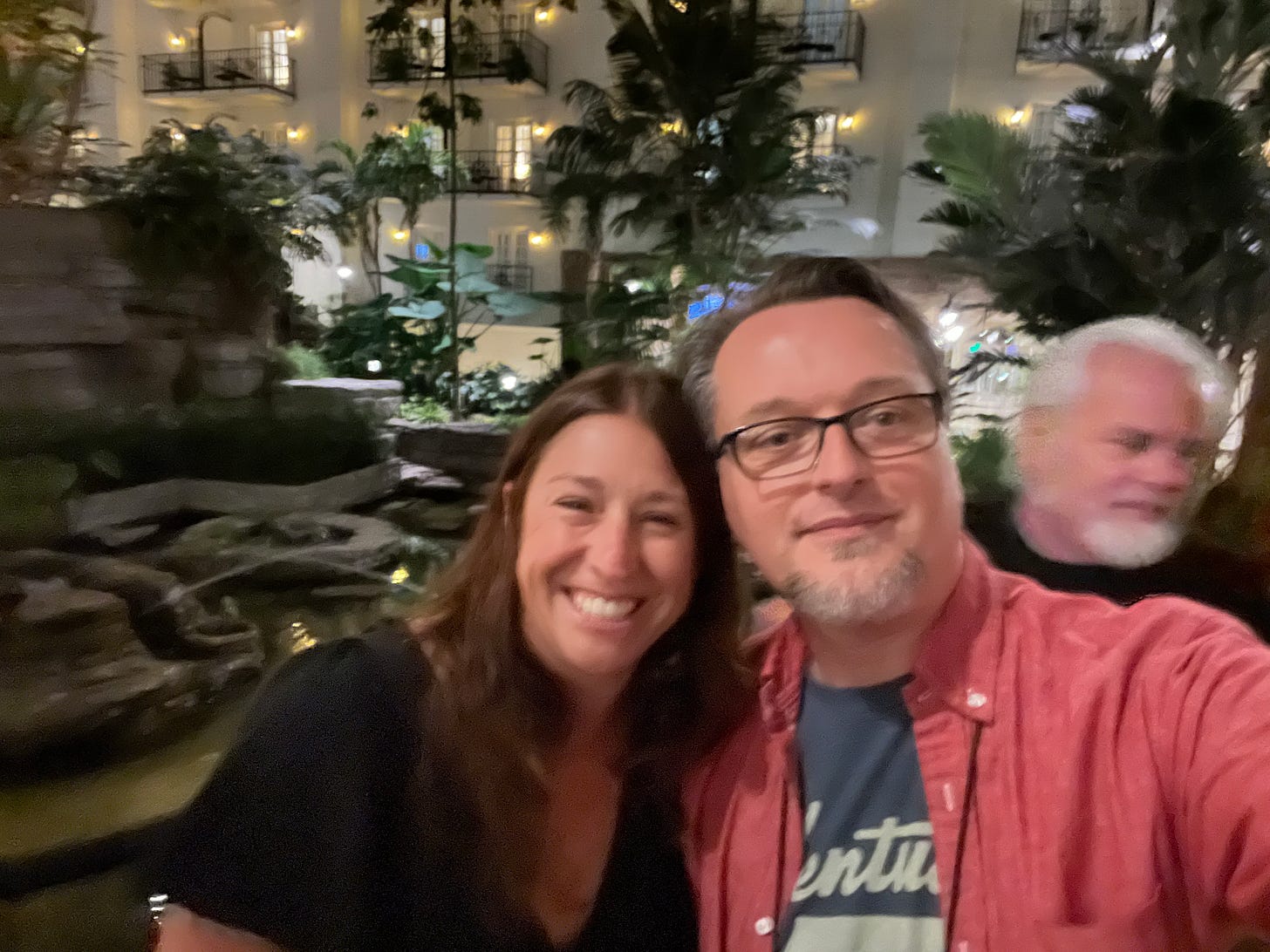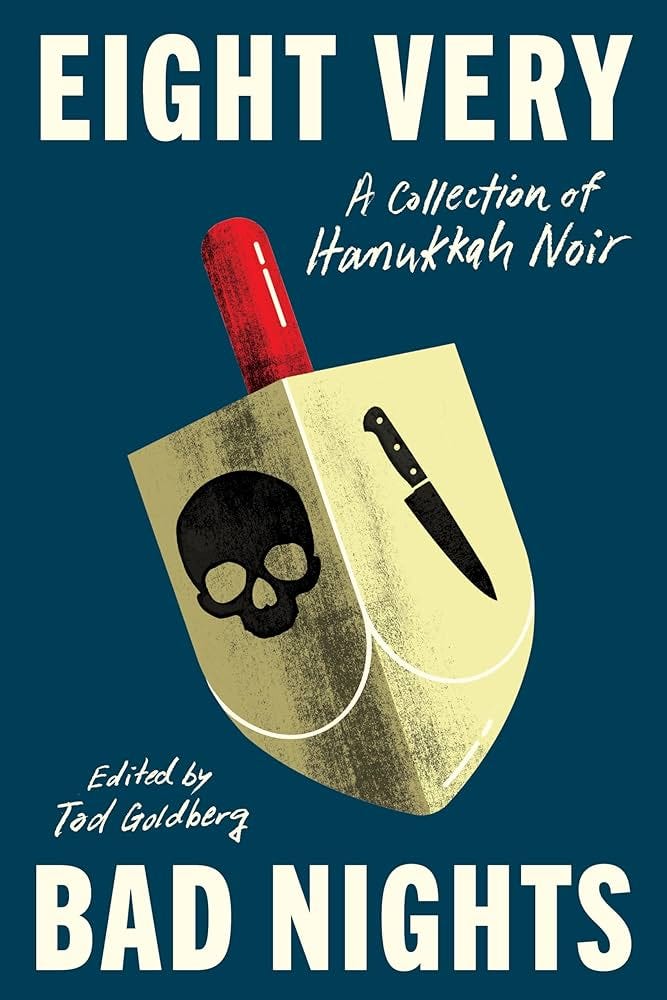#23: Five for Them, One for Me, with Julia Dahl
Julia Dahl's latest, I DREAMED OF FALLING, is out now.
Bouchercon is very much a “drinking from a firehose”-type experience, nearly overwhelming as you swim through a sea of people, many of them familiar from book cover jackets or social media profiles. It offers—even if only briefly—a chance to connect with a reader or a writer or a blogger and to realize they are actually three-dimensional humans and not simply a photo on a screen or on a page.
That’s what it was like this year in Nashville finally getting to meet Julia Dahl, who I’ve known only through social media but long admired for her thoughtfulness, her humor, and her insight into publishing and journalism. Julia, like myself, is a recovering journalist, though she did it as a much higher level, having worked for the New York Post and CBS News. She’s now teaches at NYU. I think we got to talk for maybe two minutes, acknowledge the other person actually exists, and, of course, take the customary selfie.
Julia’s first novel, INVISIBLE CITY, reflected her journalistic background, telling the story of a New York City tabloid reporter investigating the murder of an Hasidic woman from Borough Park. The first in her Rebekah Roberts series, the novel was a finalist for the Mystery Writers of America’s Edgar Award for Best First Novel and was named one of the Boston Globe’s Best Books of 2014, as well as winning the Barry, the Shamus, and the Macavity Awards for Best First Novel. It has also been translated into eight languages.
Her latest, I DREAMED OF FALLING, is a stand-alone, exploring the death of a young mother and the secrets of a small town. Julia taps once again into her journalism background with protagonist Roman Grady, the only reporter at a small Hudson Valley newspaper, while examining how one family struggles through tragedy.
Julia’s also the latest Five for Them, One for Me.
Let’s go.
FIVE FOR THEM
1. What was the origin point for I DREAMED OF FALLING?
The genesis of the book came out of the overwhelmed feeling I had in the first months after my son was born. I felt totally useless and, frankly, like having a child might have been a huge mistake. There were moments where if someone I trusted had said, “I’ll take him,” I might have said yes. So once I got out of that time, I started thinking, what if? What someone had offered to do the hard work of parenting a small child for me? What if I said yes? And then, fast forward a few years, and suddenly I have almost no relationship with my child?
2. I DREAMED OF FALLING deals directly with COVID and the pandemic lockdowns. A lot of authors have tended to shy away from this subject. What made you decide to address it?
I think we’re going to be living with the effects of covid for a long time. The pandemic —especially the lockdown—was so disruptive for families. I saw so many divorces, and substance abuse getting out of control, and kids developing behavior issues … on and on. And within families, not everyone agreed how to behave. Some people were like, screw this, I’m going to the bar. And some were like, you can’t come into my house without a mask and a vaccine. And when these people lived in the same family it made for a lot of strife that is ongoing.
3. Themes of grief, motherhood, and mental health run throughout the book. Talk a little about how you navigated managing such emotionally-wrought material on the page.
Lots of revision! I always want to walk the fine line of making sure people understand that there are themes I care about—that I want people to finish the book thinking about specific issues and ideas—and creating an entertaining experience. I’m glad it worked for you!
4. You’re a former journalist and you currently teach journalism. Many of your characters are journalists. Aside from the adage of “write what you know,” how do you feel your journalism career has contributed to your career writing fiction?
It’s really made it possible. Journalism taught me to privilege story and action; it taught me not to be so precious about first drafts and writing time. As a journalist, the story is due whether you have a desk to write it at or just the backseat of someone’s car! Journalism also opened up all kinds of new worlds to me. Reporters get to go everywhere and ask all kinds of questions; we’re basically paid to be nosy. And fiction writers need to be nosy. We need to always be asking questions about the people and circumstances around us. I write, in many ways, to work through all those questions. Being a working journalist taught me that, if you approach people with respect, often they will tell you their stories. And while, sure, it’s fun to write what you know sometimes—mostly I’m much more interested in writing what I don’t know, and using the writing to figure it out.
5. You started out writing a series but your last two books have been stand-alones. Do you prefer one over the other, and if so, why?
I loved writing my series, but for now at least, I plan to stay with stand-alones. There are so many kinds of people whose lives I want to explore that sticking with one main protagonist feels limiting. Though some people do the series thing in a way that avoids that, like Tana French’s Dublin Murder Squad Books. So maybe some day I’ll try that!
ONE FOR ME
You worked at Entertainment Weekly at the same time as Gillian Flynn, author of GONE GIRL and SHARP OBJECTS. Did she have any terrible habits, like clipping her nails in her cubicle or microwaving leftover fish in the office lunchroom?
Ha! Alas, I have absolutely no juicy stories about Gillian. We didn’t know each other well, but she was very nice to me when I was one of the interns. And 10 years later, she answered my email when I said I’d written and novel and was looking for advice…she recommended me to her agent!
SHAMELESS SHILLING
EIGHT VERY BAD NIGHTS, the anthology of Hanukkah noir edited by Tod Goldberg and including my story “Twenty Centuries,” is out October 29. I’ll be talking more about the story and in particular the character of Sheriff Charlotte “Crash” Landing in another newsletter, but I had to mention the wonderful write-up on the anthology in the L.A. Times as one of the five mysteries to read this fall, alongside new books by Michael Connelly, Jeffery Deaver, and—of course—Julia Dahl.
The article includes a brief Q&A with Tod, and he was kind enough to mention “Twenty Centuries.”
To use the tired cliche, being mentioned in the L.A. Times was not on my 2024 bingo card, and yet, here we are.
“Twenty Centuries” is also being reprinted in the November/December issue of ELLERY QUEEN MYSTERY MAGAZINE, which should be hitting newsstands—if those still exist—any day now. It’s my second story in EQMM, following “A Tear in His Hand” in this year’s January/February issue.
Dear Reader, I never expected to see myself on the cover of the magazine I’ve loved for roughly 35 years—one that formed and inspired the writer I am today—but as before, here we are. It’s surely a failing as a writer to not be able to describe how honored I am, and I’m sure y’all are tired of hearing about it anyway, so I’ll just say I’m thrilled and can’t wait to frame the cover and hang it in my office.
That’s all we’ve got for now. Thanks for coming. See you next time, and hey, let’s be careful out there.









